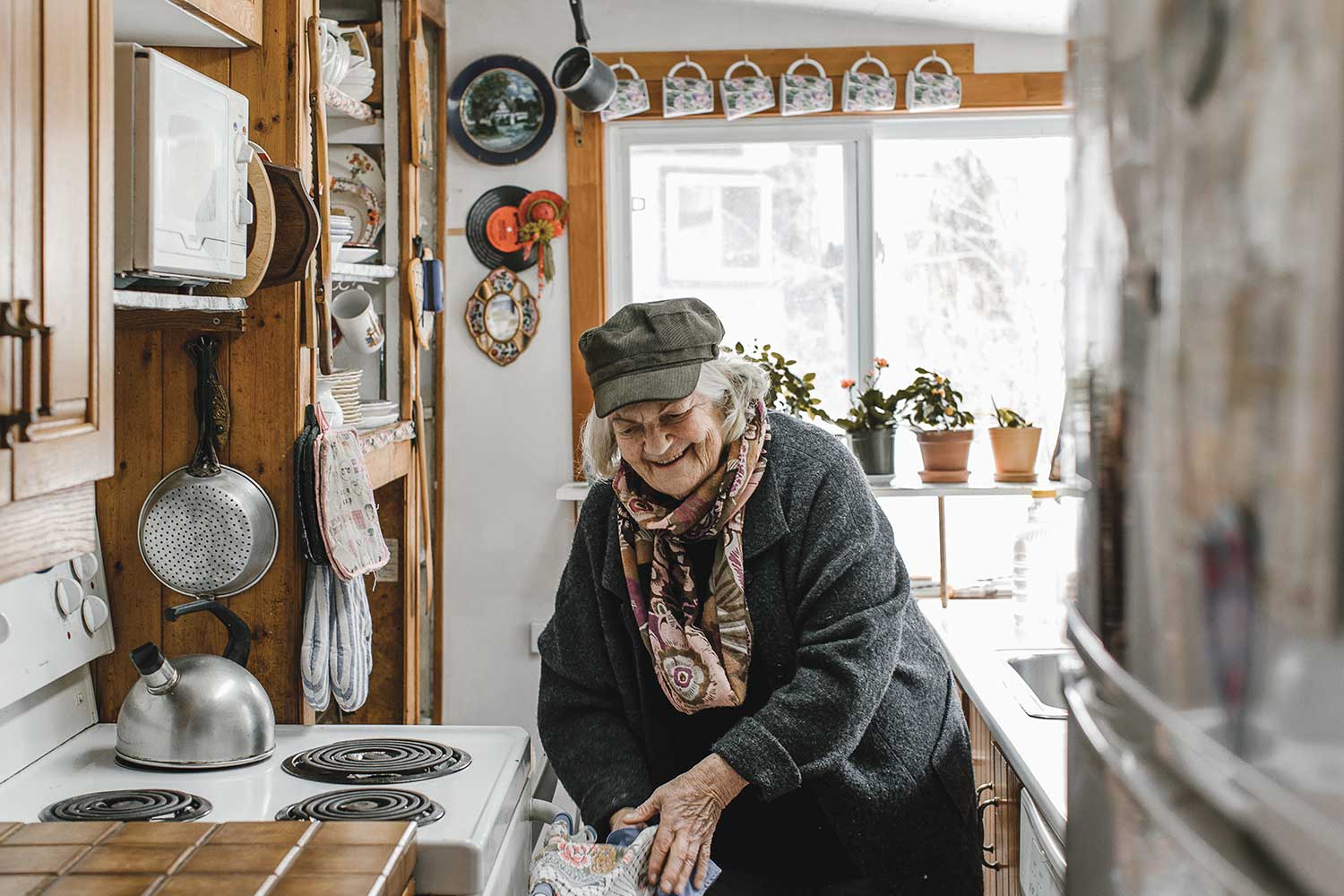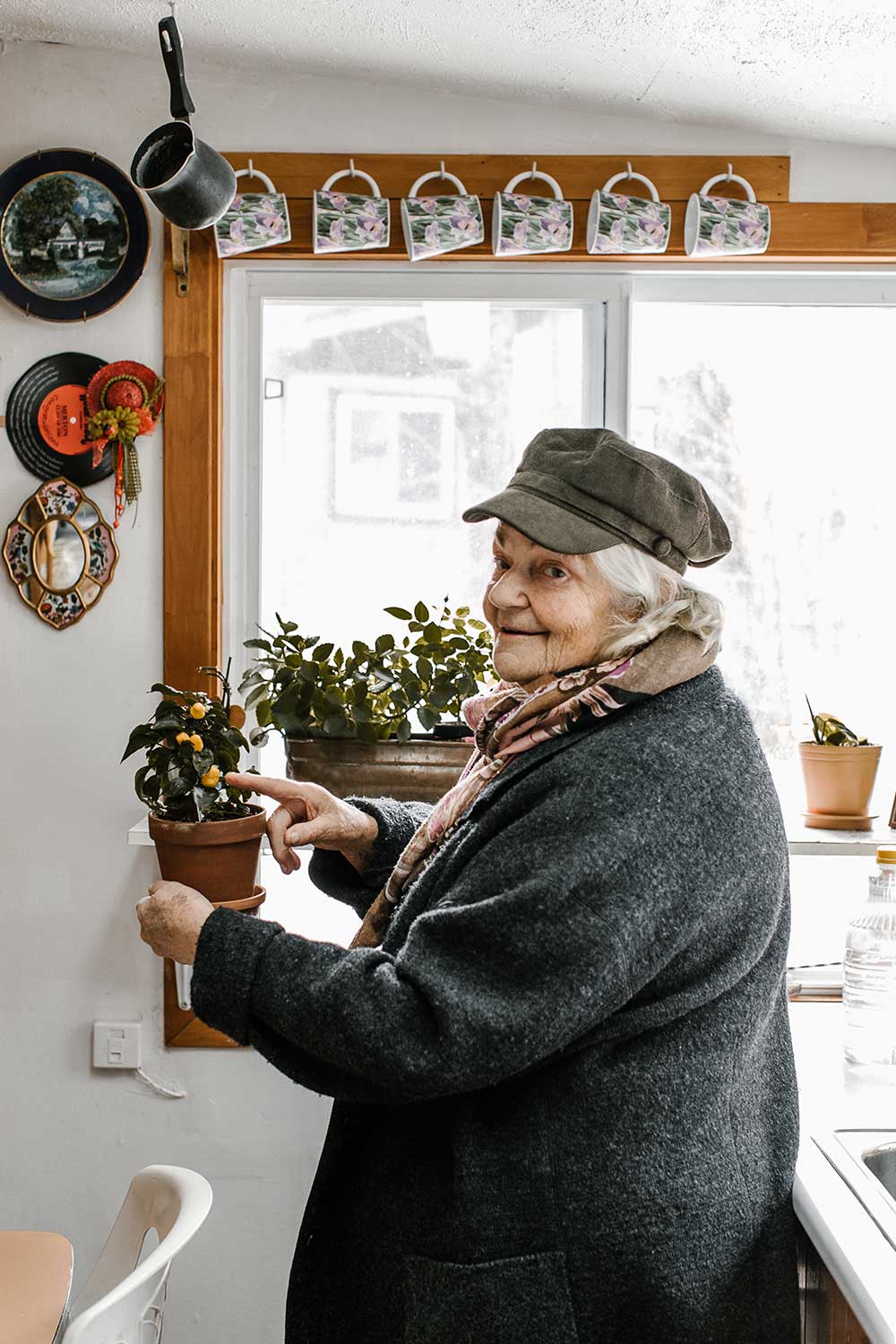Atelier
Cook sauerkraut with Ilania
Text—Eugénie Emond
Photos—Catherine Bernier
Illustrations—Mélanie Masclé
The Knowledge of Our Grandparents
Our elders who have lived among nature their whole lives have more finely tuned intuitions than we do. But since we often cut ties with the elderly, many find themselves alone with a mountain of expertise and experience that they cannot share.
Before it’s too late, BESIDE wants to pass on the knowledge (and the stories) of four Québécois seniors over the age of 80. To do so, our contributor Eugénie Emond introduced us to four of her friends and the projects that keep them busy.
_________
Ilania Abileah
Morin-Heights, 81 years old
Ilania’s home has always reminded me of a little elfin house shrouded with flowers. When I arrive, it’s full of friends and drawings. A toothless neighbour is painting the kitchenette; another neighbour watches television in the living room. At 81, Ilania is busying herself at the large table where she has set up her computer and coloured pencils. She spent the winter drawing the houseplants and flowers in this hideaway beneath the fir trees. I haven’t seen her in 10 years, but her drive and her accent are just as pronounced—though Ilania hates it when people point out her French tinged with German and Hebrew and cast doubt on her integration. “It’s insulting!” she says. She’s been here for 50 years. She’s a Québécoise, one born in Israel to a German father and a Polish mother. Her prescient grandfather took a dim view of Hitler’s rise and left Europe in the mid-1930s. In Israel he was able to buy farmland, which Jews were prohibited from doing in most European countries.

And so Ilania was born in 1937 in Haifa, in northern Israel. She spent part of her childhood in kibbutzim. There she learned to work the land, take care of farm animals, and preserve vegetables. This period of her life was not simply bucolic: as a city girl, she was constantly bullied. Even so, it was her childhood that she thought of when she bought this cottage in the Laurentians in the early 1990s, after spending more than 20 years working in offices in Montréal. When she was 58, Ilania decided to devote herself to her passion. She went back to school and earned a Bachelor’s degree in visual arts. Her near-uninhabitable cottage became her home and studio, and she invited people from all walks of life to gather there. She also brought along some of her traditions, including the ever-present jar of sauerkraut on the table. Her mother had told her how the servants fermented cabbage in the cellar of her family home in Poland. Ilania’s cellar is too humid for fermentation, but she has developed a quick method for homemade sauerkraut. Recently, though, she’s been cooking less. Her bone cancer has returned. Yet even when she’s ill and alone in Morin-Heights, she prefers this life: free, no husband to serve, and nothing but time to create.


— How to ferment cabbage —
Here is Ilania’s recipe for a quick sauerkraut. This method is suitable for any root vegetable lying around in your fridge.
1. Steam one cabbage, thinly sliced (Ilania prefers red cabbage).
2. Place the steamed cabbage in a sterilized jar.
3. Pour in brine (about 62.5 ml [¼ cup] salt to 250 ml [1 cup] hot water).
4. Add caraway seeds (optional).
5. Let stand uncovered for one full day before closing the lid for a full week.
Note: If the cabbage hasn’t begun to sour after one week, Ilania cheats a little by adding a spoonful of white vinegar and a teaspoon of sugar. She then lets the cabbage steep uncovered again for one day before covering with the lid for three weeks, until fully fermented.
Eugénie Emond is a freelance journalist and a Master’s student in Gerontology at the University of Sherbrooke. She is the creator of the documentary series En résidence, broadcast by MAtv. She also contributes to several media outlets, including the magazine Nouveau Projet.



